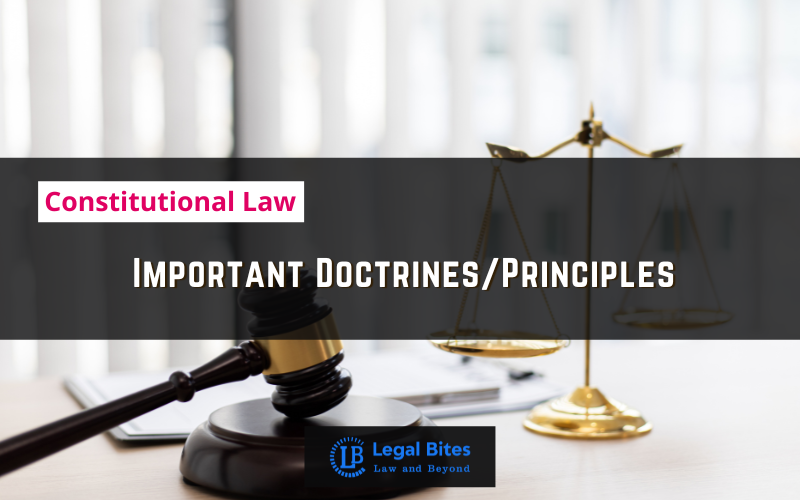“Subject to the other provisions of this part, trade commerce and intercourse throughout the territory of india shall be free.” (Article 301—Constitution of India) Discuss with the help of relevant case laws.
Question: “Subject to the other provisions of this part, trade commerce and intercourse throughout the territory of india shall be free.” (Article 301—Constitution of India) Discuss with the help of relevant case laws. [UPJS 2013] Find the answer to the mains question only on Legal Bites. [“Subject to the other provisions of this part, trade commerce and intercourse… Read More »
;
Question: “Subject to the other provisions of this part, trade commerce and intercourse throughout the territory of india shall be free.” (Article 301—Constitution of India) Discuss with the help of relevant case laws. [UPJS 2013] Find the answer to the mains question only on Legal Bites. [“Subject to the other provisions of this part, trade commerce and intercourse throughout the territory of india shall be free.” (Article 301—Constitution of India) Discuss with the help...
Question: “Subject to the other provisions of this part, trade commerce and intercourse throughout the territory of india shall be free.” (Article 301—Constitution of India) Discuss with the help of relevant case laws. [UPJS 2013]
Find the answer to the mains question only on Legal Bites. [“Subject to the other provisions of this part, trade commerce and intercourse throughout the territory of india shall be free.” (Article 301—Constitution of India) Discuss with the help of relevant case laws.]
Answer
Part XIII of the constitution contains provisions relating to the freedom of trade, commerce and intercourse within the territory of India. The provisions are laid down in Articles 301-307.
Article 301 reads: “subject to the other provisions of this part, trade, commerce and intercourse throughout the territory of India shall be free.” Thus, ‘freedom of trade, commerce and intercourse’ means the free movement/transport and exchange of goods. It means that there shall be no prior restraint upon trade and commerce. The provision secures the freedom subjected to restrictions/limitations which may be imposed under other provisions of part 13.
The freedom of trade and commerce cannot be infringed in any manner for the situations as provided within the regulatory and statutory measures. The restrictions as imposed may take the form either in fiscal or non-fiscal measures. Thus, there exists a violation of this freedom only in cases where the legislature or executive acts or operates in a manner restricting trade, commerce, and intercourse either directly or immediately.
In the landmark case of Atiabari Tea Co. Ltd. v State of Assam [1961] AIR SC 232 the court emphasized the fact that: “whatever else the Article 301 may or may not include, it certainly includes movement of trade which is of the very essence of all trade and is its integral part.” The court further held that Article 301 provides that trade shall be free throughout the territory of India; it means that the flow of trade shall run smoothly and shall be unhampered by any restriction either at the boundaries of the States or at any other points inside the States themselves.
It is the free movement or the transport of goods from one part of the country to another that is intended to be saved, and if any Act imposes any direct restrictions on the very movement of such goods it attracts the provisions of Article 301 and its validity can be sustained only if it satisfies the requirements of this Article.
Thus, it is a well-settled principle that the concept of ‘trade, commerce, and intercourse’ is wide and that the word alone in its narrow sense would include all the activities in relation to buying and selling or interchange or exchange of those commodities.
Important Mains Questions Series for Judiciary, APO & University Exams
- Constitutional Law Mains Questions Series Part-I
- Constitutional Law Mains Questions Series Part-I
- Constitutional Law Mains Questions Series Part-II
- Constitutional Law Mains Questions Series Part-IV
- Constitutional Law Mains Questions Series Part-V
- Constitutional Law Mains Questions Series Part-VI
- Constitutional Law Mains Questions Series Part-VII
- Constitutional Law Mains Questions Series Part-VIII
- Constitutional Law Mains Questions Series Part-IX
- Constitutional Law Mains Questions Series Part-X



